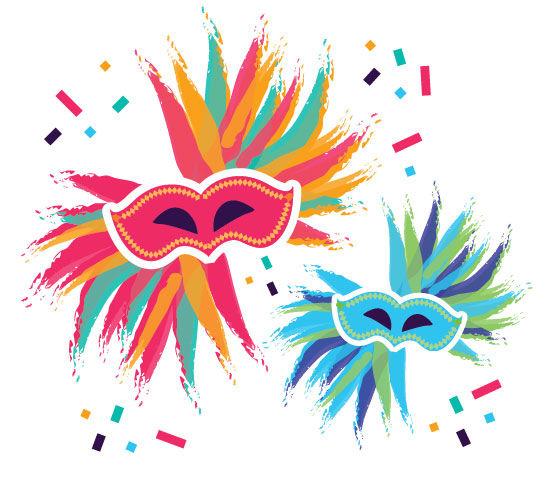Carnaval sambas its way onto campus
March 1, 2019

Senior advertising major Heloísa Carramate has not always felt like her Brazilian culture is celebrated, or even acknowledged, much by the Columbia community. Now, as president of the International Student Organization Carramate has taken it upon herself to make sure other Brazilian students feel at home at the college’s first-ever Carnaval event.
The event will be held from 7–10 p.m. at The Loft, 916 S. Wabash Ave. It will have authentic Brazilian snacks available for free and music from theColumbia College Chicago DJ Club.
According to Carramate, the number of Brazilian students at Columbia has increased exponentially over the past few years, so she and senior marketing major and ISO Vice President Bruna Jeremias wanted to create a space that would foster a safe cultural exchange.
“[Carnaval is] a way to make all Brazilian students feel at home,” Jeremias said. “When you have an event, talk or [something] that tries to bring you home a little bit, it’s good for you emotionally, and it’s a safe environment for you to express culture, which you may not have in your day-to-day situation.”
Carnaval was created in the 18th century between a blend of Portuguese colonist traditions and African slave cultures, according to an April 4, 2018,USA Today article. It also has origins in Catholic tradition as a pre-Lent celebration, but is celebrated by millions of people all over the world.
Another big part of Carnaval is samba dancing. Moacyr Marchini, director and founder of Chicago Samba, said that bringing a Carnaval celebration to the U.S. offers Americans the chance to participate in another culture. Marchini added that Chicago Samba’s Carnaval celebrations are always its biggest events of the year. This year, it will host a dance party March 2 at Logan Square Auditorium, 2539 N. Kedzie Blvd.
To Carramate, cultural celebrations are in line with Columbia’s mission.
“It’s about exchanging and learning something new,” she said. “Opening yourself up to new opportunities, collaborating—everything like that.”
She said the International Student and Scholars Services has taken steps in recent years to have inclusive and educational programming, such as Globe Chats, events where people with personal experiences in certain countries can start a dialogue in a safe space with those who might be curious about their culture.
ISO gives students access to international cultures and encourages them to learn about diverse perspectives, while also giving international students a home away from home where they can get to know others who are in similar situations.
Jeremias said ISO also strives to make sure international students are able to discuss issues and experiences they might not feel comfortable discussing in other Columbia spaces.
Ultimately, for Carramate, events like Carnaval are a chance for international students to feel comfortable and safe while celebrating their cultures.
“We’re getting a bigger community of international students [at Columbia],” she said. “It’s important for us to get together and make sure they have access to things that remind them of home.”







